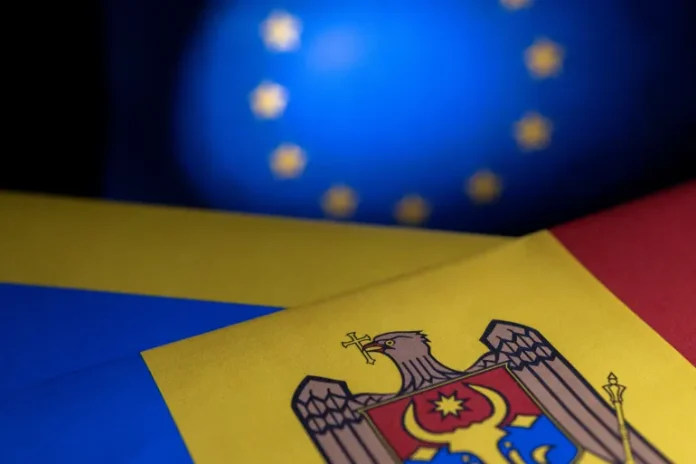Ukraine on Tuesday will formally launch European Union accession talks, which President Volodymyr Zelensky described as the fulfilment of a dream of the citizens of a country that has been in military conflict for more than two years, Time reports.
Olga Stefanyshyna, deputy prime minister for European and Euro-Atlantic integration, will lead Ukraine’s delegation to an intergovernmental conference in Luxembourg that will mark the official opening of negotiations to bring the country’s laws and standards in line with those of the 27-nation bloc.
A few hours later, Moldova, which applied for EU membership after Ukraine’s military conflict began in February 2022 and was granted candidate status four months later, will attend a separate intergovernmental conference to formally begin its own accession process.
Ukraine also sought EU candidate status in the days after February 2022. By June 2022, EU leaders quickly made it official. But things have moved more slowly since then, and accession, if it does happen, could be years away.
Turkey’s EU accession negotiations have been inconclusive for nearly two decades.
Nevertheless, the start of the negotiation process is another strong signal of solidarity with Ukraine, in addition to the billions of dollars in financial support the EU is providing. It is also a show of support for Moldova, which has faced its own problems with Russia. Zelensky said in an online post after EU member states agreed on Friday to open the talks:
Generations of our people are realizing their European dream. Ukraine is returning to Europe.
Tuesday’s intergovernmental conference will mark the start of negotiations, but the talks themselves are unlikely to begin for several months.
Candidate countries must bring their laws and standards in line with EU standards in 35 policy areas, called chapters, ranging from free movement of goods, fisheries, taxation, energy and the environment to judicial rights and security.
All 27 member states must give unanimous consent to open or close chapters, giving EU countries wide latitude to demand more work or postpone the process.
Hungary, which will rotate to succeed Belgium as EU presidency in July, has consistently stalled EU and NATO support for Ukraine. Hungarian Minister for European Affairs Janos Boka said as he arrived at the venue:
We are still at the beginning of the screening process. It’s very difficult to say at what stage Ukraine is in. From what I see here, as we speak, they are very far from meeting the accession criteria.
Bordering EU members Poland, Slovakia, Hungary and Romania, Ukraine would overtake France to become the bloc’s largest member, shifting its centre of gravity to the east. As the largest grain producer, its accession would have a huge impact on EU agricultural policy.
Along with Moldova, Ukraine stands in a long line of EU aspirants – Albania, Bosnia and Herzegovina, Georgia, Montenegro, North Macedonia, Serbia and Turkey – who have been dreaming of membership for years and feel left behind by Kyiv’s rapid progress.
Spain’s Secretary of State for European Affairs Fernando Sampedro Marcos praised both countries for their preparatory work, saying they had made “a tremendous effort in very difficult circumstances in recent months.” Paying tribute to the countries of the Western Balkans which also want to join, he said:
Of course, this requires reforms and it’s a merit-based process. We will not leave them behind.
Ukraine wants to join the EU by 2030, but to do so it needs to implement dozens of institutional and legal reforms. Steps to fight corruption, as well as broad reforms of public administration and the judiciary, top this impressive list.
